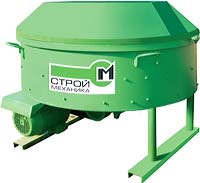|
24 February, 2014
Signing of contract for Albania
«StroyMehanika» LTD signed the contract with a company «ALART shpk», Albania.
More >>
December 5, 2013
Supply of equipment to Nigeria
"StroyMehanika" LTD signed the contract with a Nigerian company "KINGSDALE MULTI-RESOURCES LIMITED" for supply of machinery on "Sistrom" technology.
More >>
October 25, 2013
Delivery of equipment to Nigeria
"StroyMechanika" LTD and company "Dunamis Manufacturing Enterprises" signed the sales contract for supply of industrial equipment by "Sistrom" technology to Nigeria.
More >>
|









 Microsilica is used as highly active mineral concrete and cement agent and intended to mix high-grade concrete by strength, water resistance and high rust-proof quality.
Microsilica is used as highly active mineral concrete and cement agent and intended to mix high-grade concrete by strength, water resistance and high rust-proof quality.






